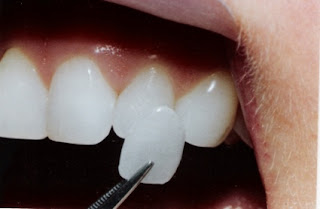There isn't probably anyone who wouldn't know the feeling of an aching tooth. The reason for this pain in most cases applies to untreated caries or inflammation. However, there are a number of other factors that may cause toothache. These include, among others, tooth sensitivity, pain after surgery, root canal treatment or after filling treatment.
Toothache can be caused by tooth decay, infection, nerve irritation. Inside the tooth, there is pulp, commonly called nerve. If there is inflammation, the pulp hurts, which is usually caused by decay. Cavities reveal the tooth nerve, which has constant contact with foods and drinks - it causes pain. A patient who does not go to the dental surgery to cure the problem, exposes himself/herself to the development of inflammation. The pulp dies - very often an abscess appears and causes radiating pain which hard to bear.
Toothache is characterized by varying intensity. The tooth may hurt moderately, but also inflammation can lead to pain throughout the jaw, head and ear. In extreme cases it may cause periostitis, the accompanying pain that makes you almost "die" of pain, and painkillers do not help. Only a dentist can help, as well as implementation of antibiotics, which eliminate the acute inflammation.
Causes of toothache
- Untreated tooth decay - as a consequence of inflammation of the pulp
- Root canal treatment (inaccurate purification of the canal, which leads to the bacteria development under the filling)
- Falling out of a filling
- Fracture of a tooth
- Gingival abscess
- Development of the wisdom teeth
- Ulceration of the gums
- Fillings
- Changes in the periapical tissues, etc.
Dental fillings, may also contribute to a toothache. This is most commonly caused by irritation of the pulp (nerve).
Prevention
In order to prevent tooth pain, you should take care of your teeth and mouth. In addition to brushing (teeth and tongue), mouthwash and use of dental floss you need to limit sugar to a minimum. Of course you can not forget about visiting your dentists in Poland.





